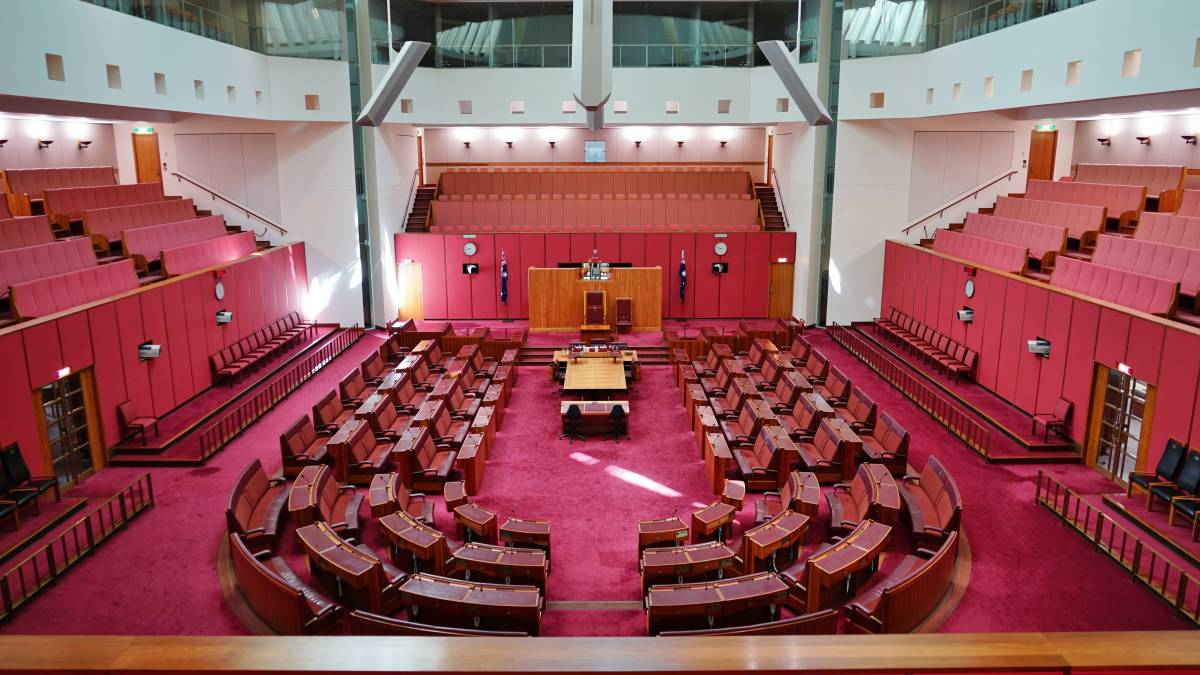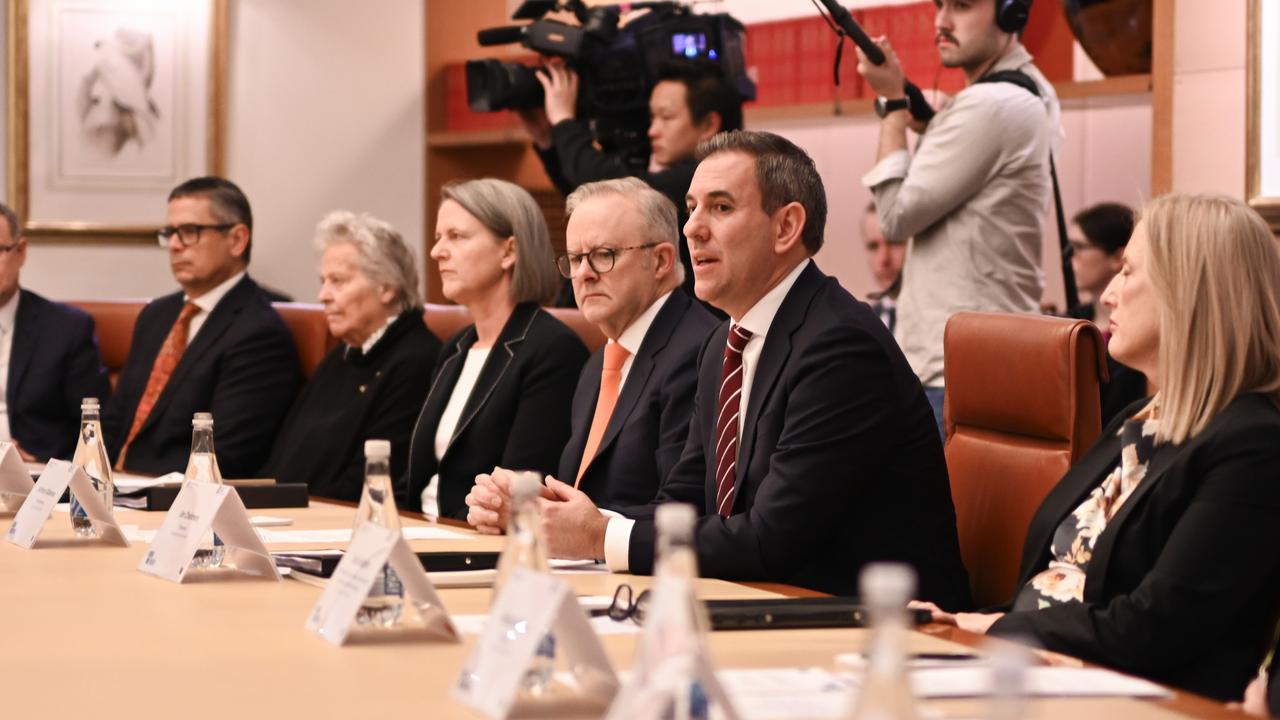The final fortnight of winter sittings delivered a mix of high-stakes policy battles, symbolic moments, and international diplomacy. From aged care reforms and new online safety measures, to the spectacle of the Mid-Winter Ball and the latest call between the Prime Minister and the US President, proceedings featured a mix of legislative focus and ceremonial events. Here’s a round-up of the key developments shaping the national conversation.
1. Aged Care: Government Concedes on Home Care Packages
Aged care policy dominated question time this week. Under pressure from a cross-party alliance of the Coalition, Greens, and independents, the Government agreed to bring forward 20,000 new home care packages within two months, with another 20,000 before December and 43,000 in the first half of 2026.
The decision followed new departmental data revealing that nearly 5,000 people died last year while waiting for support they had already been assessed as needing, while more than 200,000 Australians remain in the queue for packages or assessments. Opposition Leader the Hon Sussan Ley MP framed the concession as the Coalition’s first post-election win, accusing Labor of a “humiliating backdown.” The Greens echoed the sentiment, calling the delays “pointless.”
Health Minister the Hon Mark Butler MP sought to temper the political fallout, highlighting “constructive discussions” with Shadow Health Minister Senator the Hon Anne Ruston and stressing the importance of bipartisan reform. He acknowledged the challenge of ensuring packages translate into services, given persistent workforce shortages.
The budgetary impact will be confirmed in the Mid-Year Economic and Fiscal Outlook, but the policy shift is widely seen as clearing the path for passage of the new Aged Care Act, scheduled to commence on 1 November.
2. Mid-Winter Ball: Politics, Fashion and Fundraising
The annual Mid-Winter Ball returned to Parliament House, delayed until August due to the federal election but still drawing a full house of political and media figures. Billed under the theme “House of Cards,” the event combined satire, spectacle, and charity fundraising. Across the aisle, MPs, journalists, and industry guests used the occasion to showcase lighter sides of political life.
The Ball retained its role as an important site of soft diplomacy and networking. Attendees remarked on a more subdued tone this year, influenced by updated parliamentary alcohol rules and the recalibration of Canberra politics after May’s election.
The silent auction raised a record-breaking $370,000 for charity, with standout bids including a “mystery flight” with Opposition Leader Ley, claimed by Australian businessman and Climate 200 convenor Simon Holmes à Court. Both he and the Prime Minister featured prominently in Ley’s address, in which she offered congratulations on his election victory while quipping that he might have secured even more seats had he added an extra ‘s’ to his surname. While remembered for fashion and satire, the event’s enduring significance lies in its ability to bring together disparate parts of the political ecosystem in a rare moment of détente.
3. Digital Duty of Care and Online Safety Reforms
Online safety was back in the spotlight as the Government unveiled plans to address nudification tools and undetectable stalking technologies. The reforms will build on the forthcoming Digital Duty of Care, placing greater obligations on tech companies to prevent the availability of harmful apps and services.
The initiative responds to recommendations from the statutory review of the Online Safety Act 2021, which identified gaps in laws tackling technology-facilitated abuse. The Government has emphasised that the changes will not affect legitimate uses of AI or online tracking but will target tools designed to exploit or harass.
Minister for Communications, the Hon Anika Wells MP described the reforms as urgent, noting that abusive technologies are already “widely and easily accessible” and causing “irreparable damage.” While acknowledging the reforms will not eliminate the issue, she stressed that they form part of a broader harm-prevention approach.
Industry engagement will be critical to implementation. Companies will be expected to balance compliance with innovation, as Australia positions itself among the frontrunners in global debates on platform accountability and digital regulation.
4. US Relations: Fourth PM–Trump Call, Still No Meeting Date
Foreign policy also featured, with Prime Minister Anthony Albanese holding his fourth phone call with US President Donald Trump since Trump’s return to office. The Prime Minister described the exchange as “warm and constructive,” with discussions covering trade, critical minerals, and shared security interests.
The timing is notable, coming ahead of the UN General Assembly in New York, where both leaders are scheduled to attend. Despite repeated engagement by phone, there is still no date for a face-to-face meeting – a point seized on by the Opposition, which argued that securing in-person talks should be a priority for advancing AUKUS and trade.
The call comes amid uncertainty over US tariffs on Australian exports Washington pressing Canberra to increase defence spending more rapidly. Australia currently commits just over 2 per cent of GDP, with plans to reach 2.33 per cent by 2033/34, short of the 3.5 per cent target floated by US officials.
Supporters of the alliance, including Australia’s Ambassador to the United States, the Hon Kevin Rudd AC, welcomed the ongoing dialogue as a sign of continuity, while critics noted that key issues remain unresolved. September’s UN meetings may provide the first opportunity for in-person leader-level diplomacy since Trump’s return to office.
5. First Speeches
Beyond the high-profile policy debates and international diplomacy, the sitting fortnight also provided space for tradition. A series of first speeches continued in both chambers, giving newly elected Members and Senators the chance to introduce themselves to Parliament and outline their priorities formally.
Senator Charlotte Walker – Australian Labor Party (South Australia)
In her first speech, Senator Walker embraced her status as the youngest-ever member of the Senate, rejecting criticism about “lacking life experience” and instead positioning herself as a voice for young Australians. She spoke passionately about intergenerational inequality, highlighting housing affordability, wage stagnation, and climate insecurity as defining challenges. Walker described the anxiety her generation feels in the face of escalating climate events, calling for urgent action to secure a liveable planet.
Her address was also deeply personal. She reflected on her upbringing in regional South Australia, experiences with bullying, family separation, and depression, as well as her recent diagnosis with a genetic heart condition. These experiences, she said, instilled empathy and resilience, shaping her commitment to youth mental health, domestic violence prevention, workers’ rights, and universal healthcare. Proudly rooted in the Labor movement and her work with the Australian Services Union, Walker pledged to be a fierce advocate for a fairer, more sustainable future – insisting that young Australians “deserve a seat at the table where decisions are made.”
Senator Jessica Collins – Liberal Party of Australia (New South Wales)
Senator Collins reflected on an unconventional path to politics, joining the Liberal Party at 35 while raising four young children, and persevering through a string of unsuccessful preselections before winning her Senate seat. Her first speech wove together academic experience in anthropology and Pacific studies with her personal commitment to family, positioning family policy as her central priority. She argued for tax reforms such as income-splitting, household-based tax thresholds, and childcare tax deductions to give families more choice and encourage higher birth rates, warning that Australia’s family policy framework is “not fit for purpose.”
Collins also used her speech to articulate a strong national security and foreign policy agenda. Drawing on her experience with the Lowy Institute and the ADF Parliamentary Program, she called for greater investment in defence personnel and equipment, a more nimble and locally focused industry policy, and the creation of a “Pacific Regiment” to strengthen regional partnerships. She highlighted the economic and social importance of Pacific labour mobility, remittances, and trade, while urging tougher sanctions on Burma’s military regime. Senator Collins framed her politics around family, faith, and national security, pledging to serve New South Wales with resilience and honesty.
Senator Tyron Whitten – One Nation (Western Australia)
Senator Whitten’s first speech traced a journey from a childhood on the NSW Central Coast to founding a major construction business in Western Australia. Speaking as a former tradesman, entrepreneur, and grandfather, he reflected on the values of hard work, discipline, and service instilled by his parents and grandfather, a WWII veteran. He described building Whittens Group from an old ute into a company employing over a thousand workers, crediting family sacrifices and lessons of integrity and fairness along the way.
Whitten framed his parliamentary purpose around defending Western Australians’ interests, pledging to advocate for farmers, small business, and regional communities. He argued for less red and green tape, housing access for young Australians, and tougher laws against violent crime. A self-described free-speech absolutist, he warned against censorship and ideological overreach, calling instead for “common sense” politics. He also voiced scepticism of “settled science” and criticised renewable projects he said threatened wildlife, including whales and koalas. Whitten pledged to stand for freedom, fairness, and an Australian way of life.
Senator Michelle Ananda-Rajah – Australian Labor Party (Victoria)
Senator Ananda-Rajah opened her speech with a vision of Australia in 2065, transformed by science and technology into a resilient, prosperous, and high-wage society. Drawing on her career as a doctor, researcher, and former MP for Higgins, she made the case for biotech as Australia’s next great industry, alongside clean energy and critical minerals. She called for bridging the “missing middle” of biotech firms and turning research excellence into commercial strength, while warning of the systemic barriers facing young scientists and women founders.
Her address also revisited her pandemic advocacy, when she spoke out about healthcare worker safety despite political pressure, which ultimately led her to Labor politics. Ananda-Rajah reflected on her migrant background, her Tamil heritage, and her role as the first Tamil senator, highlighting cultural diversity as a national strength. She spoke with candour about unconscious bias and structural barriers that hold back women and migrants, calling them “acts of self-harm” that deprive Australia of talent. Emphasising pragmatism, inclusion, and science-driven policy, she pledged to deliver progress on health, climate, and innovation, positioning herself as a champion for the future of work, research, and equity.
The past fortnight highlighted the breadth of activity that defines parliamentary life — from high-stakes negotiations on aged care reform to evolving approaches to online safety, the spectacle of the Mid-Winter Ball, ongoing alliance diplomacy with the United States, and the personal reflections of new Senators in their first speeches.
Together, these moments show how policy, politics, and parliamentary culture intersect to shape the national conversation.
Stay tuned for more Nexus APAC insights as we continue to track the issues that matter most in Canberra.
Latest posts by Nexus APAC (see all)
- Examining Medicine Shortages in Australia - February 7, 2026
- The Secretaries of Federal Departments - January 31, 2026
- Merry Christmas from the Nexus APAC Team - December 19, 2025



